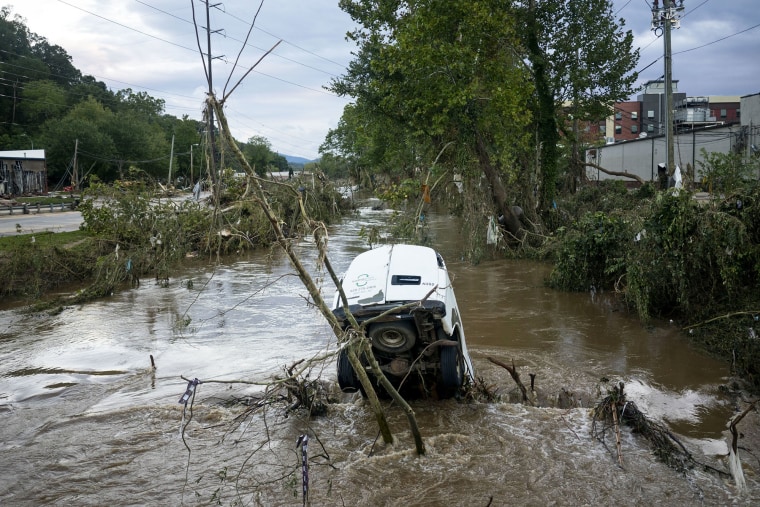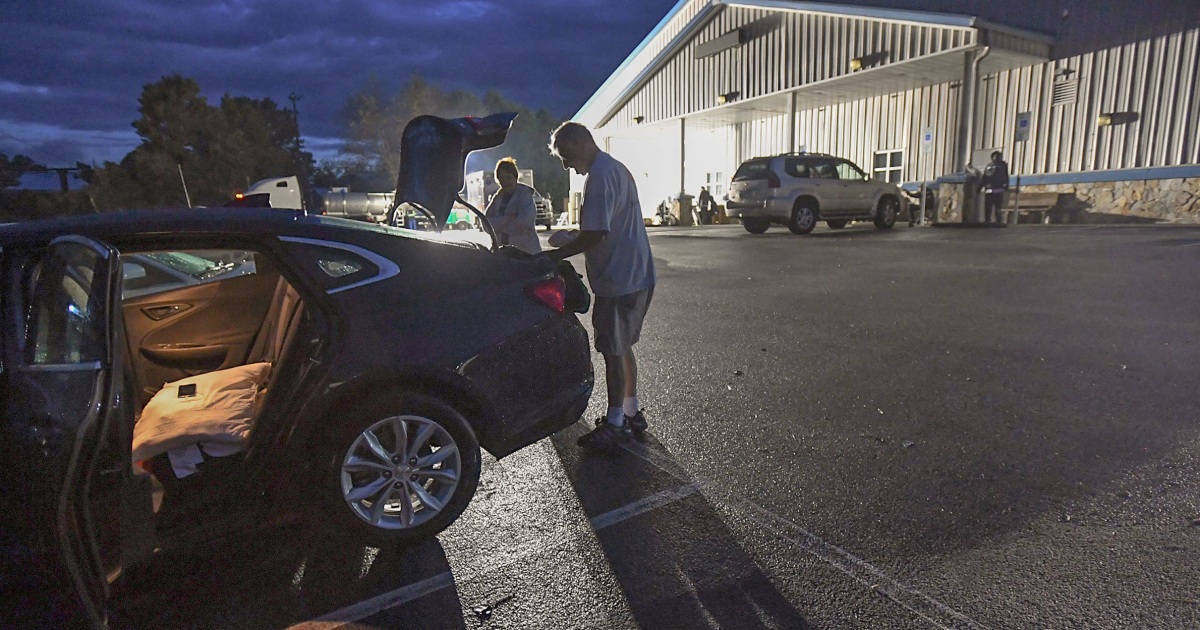Ferguson said a neighbor drove him to higher ground before the low-lying area where they lived was inundated by floodwaters. He said the water came up to the roof of his home and lifted it off its moorings before it slammed into another trailer.
When the waters receded a bit, Ferguson was able to get back to his trailer and salvage some clothes and other items, he said. There’s still no power in his neighborhood and people have been using boats to rescue people trapped in their homes.
“It’s down bad,” he said. “It’s scary.”
Ferguson said A-B Tech is the third shelter he’s been in since his home was destroyed. He said he doesn’t know where he will end up next.
Bev Nowling, who lives in the West Asheville section of the city, arrived at A-B Tech after a tree crashed through the window of her home Friday. She said she had just taken a bath and was sitting down to dinner when it happened.
Nowling, who lives with a nephew, said when the power went out she knew it was time to go. She said she has medical issues and can’t live without electricity.
No stranger to calamity, Nowling said she was in Florida in 2022 when Hurricane Ian roared through and wrecked her children’s home. She said she knew some people who died in that storm and is thankful that Helene, as bad as it was, wasn’t worse.
“Material stuff can be replaced,” Nowling said. “I just have to start from fresh here.”
But where to start remains the unanswered question.
“I’m kind of at a loss of what to do,” Nowling said.

The feelings of displacement and uncertainty are widespread at A-B Tech, said Karol Chase, a Red Cross disaster program manager who came down from Michigan to set up the shelter.
She said she has provided assistance following 15 other natural disasters across the country over the years.
“You have some people who are upset because they have been displaced,” Chase said. “This is catastrophic.”
But right now, Chase said, the focus is to provide the refugees with the basics — food, drinking water, and a safe and dry place to sleep.
Chase said local community organizations have been able to provide them with the essentials.
“The shelter is still in need of more water, clothing and toiletries,” she said.
What they’ve also run out of, Chase said, is space.
“As somebody checks out, we get somebody else in,” she said. “But most everybody is cooperating. They know it’s going to take everybody working together to make it work. It’s times like this we see the communities come together.”
Minyvonne Burke reported from Asheville, North Carolina, and Corky Siemaszko from New York City.

Leave a Reply